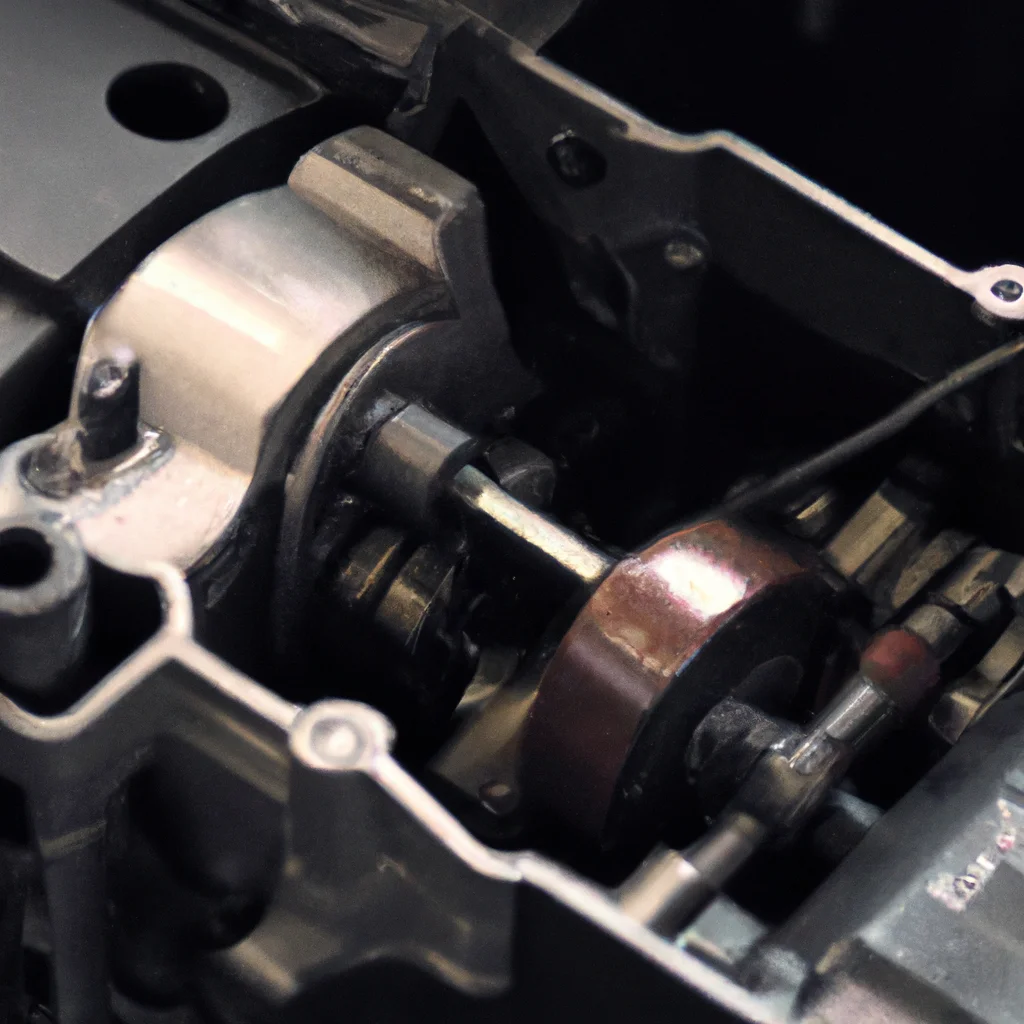How does a car’s starter motor work?


How does a car's starter motor work?
A car’s starter motor is an essential component of the engine starting system. It plays a crucial role in getting the engine to start and run smoothly. In this article, we will take a closer look at the starter motor function, operation, components, and technology, answering the question, how does a car’s starter motor work?
Starter Motor Function
The starter motor’s primary function is to turn the engine’s crankshaft until the engine fires up and starts running. It converts electrical energy from the car battery into mechanical energy that rotates the engine’s crankshaft. The starter motor is responsible for initiating the combustion process that powers the car engine. It is a critical component of the car’s engine starting system, ensuring that the engine starts and runs smoothly.
Starter Motor Operation
The starting motor mechanism works by using an electrical current to generate a magnetic field that rotates the starter motor’s armature. The armature is a cylindrical shaft with wire coils wrapped around it. When the starter motor is activated, a small gear called the pinion gear on the starter motor engages with a larger gear on the engine’s flywheel, causing the engine to turn over. The pinion gear meshes with the flywheel ring gear, which is attached to the engine’s crankshaft. The rotation of the armature causes the pinion gear to turn the engine’s crankshaft, which initiates the combustion process.
Starter Motor Components
The automobile starter motor is made up of several components that work together to perform its function. These include:
1. Armature – A cylindrical shaft with wire coils wrapped around it that rotates when the starter motor is activated.
2. Pinion Gear – A small gear that engages with the flywheel ring gear to rotate the engine’s crankshaft.
3. Commutator – A copper ring that conducts electrical current to the wire coils on the armature.
4. Brushes – Carbon blocks that transfer electrical current from the battery to the commutator.
5. Solenoid – A switch that connects the starter motor to the car battery and activates the pinion gear’s engagement with the flywheel ring gear.
6. Housing – A protective casing that holds the starter motor components together.
Starter Motor Technology
Starter motor technology has evolved over the years, with advancements in electrical engineering and materials science. Modern starter motors are more efficient, reliable, and durable than their predecessors. Some of the latest starter motor technologies include:
1. Permanent Magnet Motors – These starter motors use permanent magnets instead of wire coils to generate a magnetic field, resulting in a more efficient and compact design.
2. Gear Reduction Starters – These starter motors use a gear reduction mechanism to deliver more torque to the engine’s crankshaft, making it easier to start the engine.
3. Start-Stop Systems – These systems automatically turn off the engine when the car is stationary and restart it when the driver releases the brake pedal, reducing fuel consumption and emissions.
Conclusion
In conclusion, a car’s starter motor is an essential component of the engine starting system that converts electrical energy from the car battery into mechanical energy that rotates the engine’s crankshaft. The starter motor’s operation involves using an electrical current to generate a magnetic field that rotates the armature, which engages the pinion gear with the flywheel ring gear and turns the engine’s crankshaft. The starter motor is made up of several components that work together to perform its function, including the armature, pinion gear, commutator, brushes, solenoid, and housing. Starter motor technology has evolved over the years, with advancements in electrical engineering and materials science leading to more efficient, reliable, and durable designs. By understanding how a car’s starter motor works, drivers can appreciate the critical role it plays in getting their car running.
Recent Posts
How do I create an engaging and informative online quiz or assessment?
Creating an engaging and informative online quiz or assessment can be a powerful tool for… Read More
What are the most effective methods for managing and reducing work-related stress in the hospitality industry?
Work-related stress is a common issue in the hospitality industry, where employees often face long… Read More
How can I improve my assertiveness and communication skills in a leadership position?
In a leadership position, assertiveness and effective communication skills are crucial for success. Being able… Read More
What are the key elements of a successful employee recognition and rewards program?
Employee recognition and rewards programs play a crucial role in motivating and engaging employees, as… Read More
How do I effectively manage and respond to customer feedback and reviews?
Customer feedback and online reviews play a crucial role in shaping a company's reputation and… Read More
What are the best strategies for effective time management as a stay-at-home parent?
Effective time management is crucial for stay-at-home parents who juggle multiple responsibilities on a daily… Read More